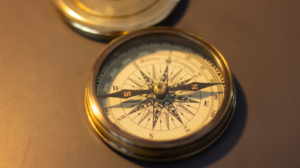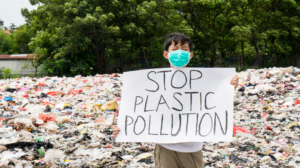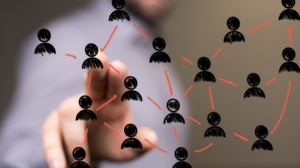Bahamian scientist wins Goldman Prize for leading kids in the fight against plastic waste
When Kristal Ambrose was about 18 years old, she had to hold onto a struggling sea turtle as a marine veterinarian removed piece after piece of plastic waste from its rectum to save its life.
She was working at an aquarium at the time, and she still remembers the “agony and pain” on the turtle’s face as the vet pulled out candy wrappers and strips of plastic shopping bags.
“It was just like, jeez, I throw mint wrappers on the ground all the time,” the 30-year-old Bahamian marine biologist told As It Happens host Carol Off.
“Seeing that really connected me to the fact that plastic has a negative impact on the animals, especially the ones that I love and that I work with.”
Ambrose went on to dedicate her life to fighting plastic pollution in the Bahamas, and inspiring young people to do the same. This week, she was awarded a Goldman Environmental Prize for her efforts. The prestigious award, sometimes called “the green Nobel,” is given out annually to activists in each of the world’s six inhabited continents.
Ambrose says she always knew she wanted to work in marine biology. Growing up in the Bahamas gave her a passion for the ocean and all the creatures that dwell within it.
But it wasn’t until the incident with the turtle that she realized her own actions were contributing to their suffering. Then several years later, on a 2012 exhibition to the Western Garbage Patch, she saw first-hand the true scope of the plastic problem.
Off the shores of Japan, the area forms the western half of the Great Pacific Garbage Patch, a massive vortex of floating trash from Asia, North America and South America.
“While we were out there, we were isolated from land, from other vessels, from airplanes, and it was just us, wildlife and waste,” she said.
She saw buoys, barrels, Styrofoam containers and plastic fishing nets all tangled up with everyday items like toothbrushes, combs and plastic cutlery.
“And looking through that … I realized that these are all things that I use in my everyday life,” she said.
“And it was then when I had the realization that I was a huge part of the problem. I was the biggest plastic offender that I knew, and equally so I could be a part of the solution.”
She carried that lesson home with her, and launched the organization Bahamas Plastic Movement.
But she had to contend not only with pushback from industry and people in the halls of power, but also within her own community.
There was a perception, she said, that environmentalism was a rich white man’s game. But as a Black woman from a working class background, she wanted to engage her community in protecting her homeland’s fragile biodiversity.
“I’m from this country, this is my island, and I have a stake in protecting it. Why does it have to be a Black or white issue? It’s an environmental issue,” she said.
Read the full and original story at cbc.ca



